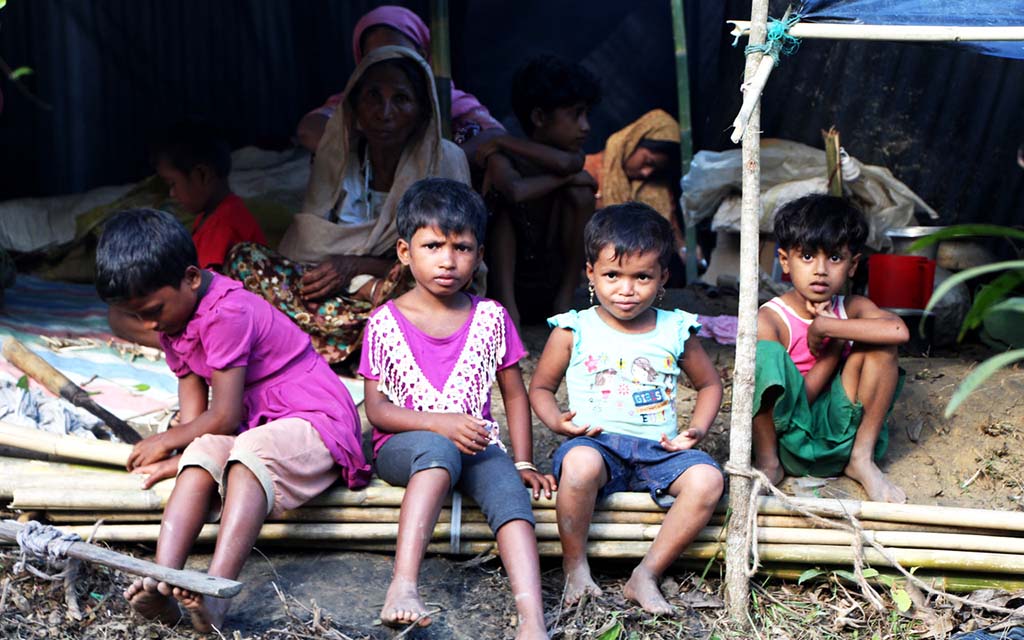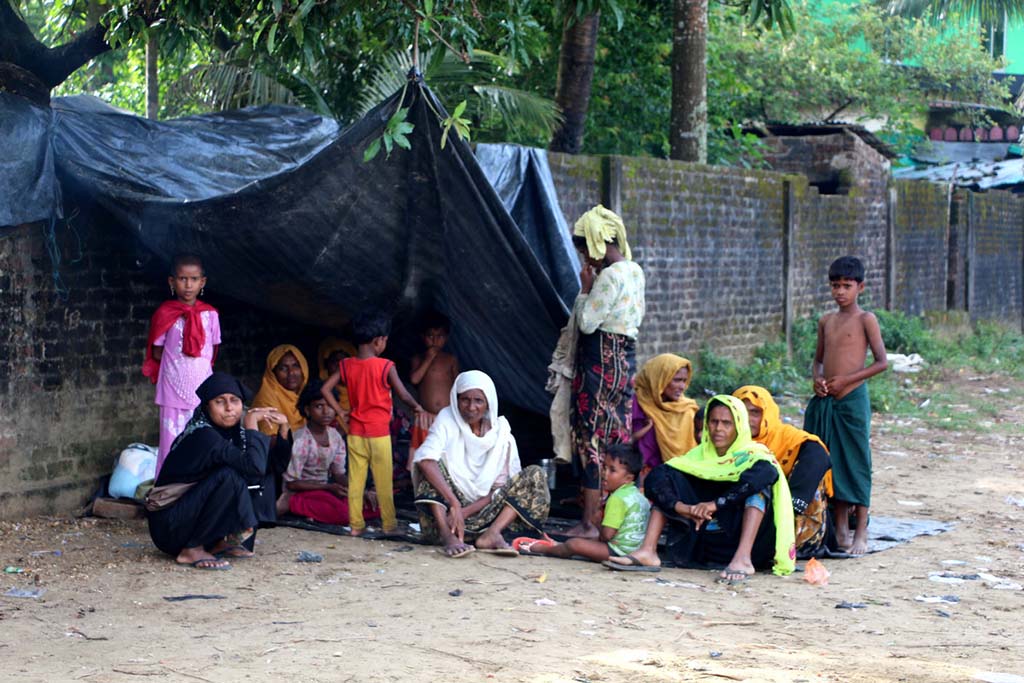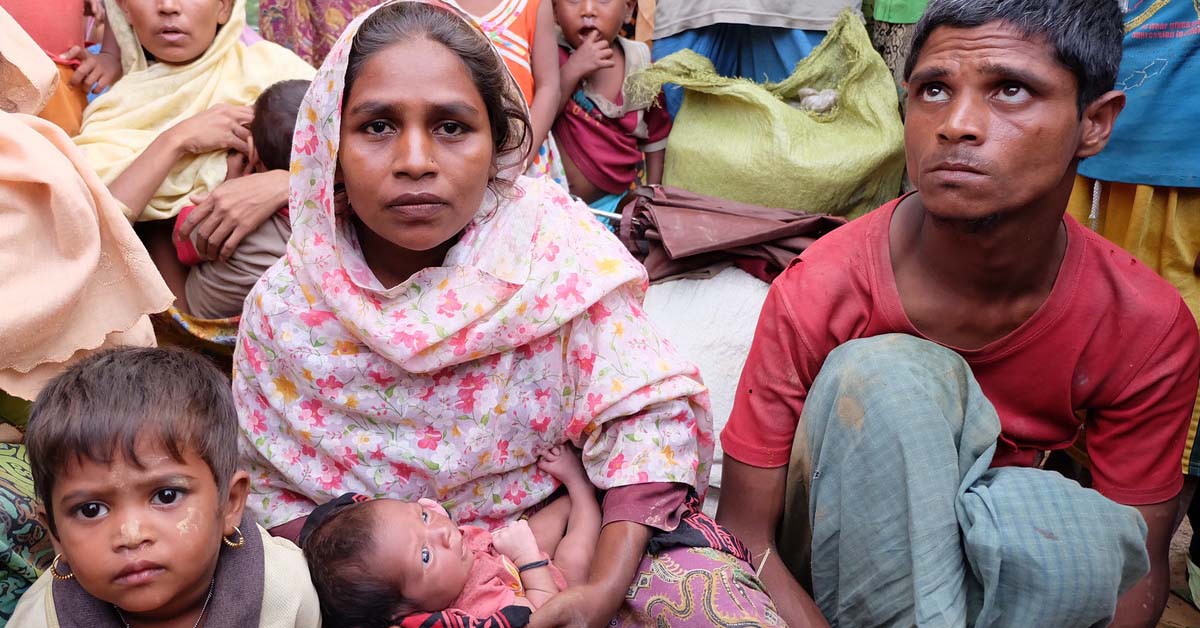By Farah Kabir, ActionAid Bangladesh Country Director
Hundreds of thousands of Rohingya families have fled to Bangladesh since violence erupted in North Rakhine, Myanmar, late last month. In the past few days alone I have seen thousands of vulnerable women and children flooding over the border into Cox’s Bazar, sleeping on the roadside, in the open air, with barely even the clothes on their backs.
Almost all of the refugees have been travelling for days by foot, and in are in desperate need of food, shelter, clean water and medicine. The women and children I have met are exhausted and weak; many have suffered injuries from their dangerous journeys.
Rohingya Families Living Under One Sheet of Plastic
It’s heartbreaking and overwhelming here on the ground. In nearly 15 years of working on humanitarian disasters I’ve never seen a crisis of this scale. People here are living on top of one another. Entire families are living under just one sheet of plastic, some have been here for two weeks.

Entire families of Rohingya refugees are living under just one sheet of plastic in Balukhali camp in Coxs Bazar, Bangladesh, after fleeing from Myanmar’s Rakhine state. Photo: Md. Sariful Islam/ActionAid
I’m so worried about the camps catching fire, as families are cooking under polythene and there is no electricity, so at night they are using candles, which is an accident waiting to happen.
It’s heartbreaking and overwhelming here on the ground.
There is a dire shortage of water and what little water there is families have to wash, drink and cook using the same contaminated sources. There are no latrines or sanitary facilities. You can smell the stench miles up the road.

Thousands of vulnerable women and children are sleeping on the roadside. Photo: Md. Sariful Islam/ActionAid
Women and girls are unable to relieve themselves as there is no privacy to do this. And breastfeeding mothers have no space to care for their infants with dignity. There was a woman who after walking for days, gave birth in the makeshift camp with the help of other women, but she had no medical professional, medicine, food, water or post-natal care.
Risk of a Health Epidemic
I am so worried about the dire conditions people are living in and the potential risk of a health epidemic caused by water borne disease. The world must not allow this to happen, by not acting swiftly.
The things I’ve heard here are devastating. People are so scared. You can see it in their eyes; they do not know who to trust. They do not know what the future, or even tomorrow holds.
Families are just doing all they can to survive each day. The scale of need is far outweighing the response. Tomorrow we will start delivering lifesaving aid to over 2000 households, but more help is desperately needed.
Families are just doing all they can to survive each day.
We are calling on all sides to cease the conflict immediately and urge the Myanmar authorities to meet their obligation to give immediate access to humanitarian organisations. We also need the international community to step up to help provide lifesaving aid to families, especially women and children in urgent need.



